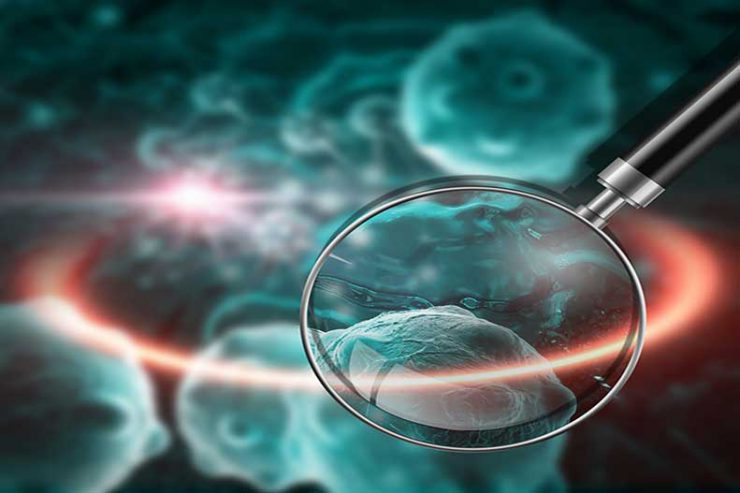Cancer is a group of about 100 diseases involving abnormal cell growth. Although most individuals facing a cancer diagnosis want to know what caused their cancer, the answer is not that simple.
Living organisms, including human beings, are made up of cells. Cells generally have a specific life cycle depending on their location in the body. Different cells have different lifespans.
For instance, your liver cells may live from six months to a year before being replaced. Taste buds have it rough; they are replaced every 10 to 14 days. Healthy cells have the ability to self-destruct when they die or become damaged. Normal, healthy cells also grow and divide in a controlled fashion. When a healthy cell dies, in general, it is replaced by another healthy cell. Changes in a healthy cell can cause it to grow in an uncontrolled fashion, resulting in a tumor or mass.
Related: The Value of Taking Part in a Clinical Trial
Never Miss a Beat!
Subscribe to Our HealthBeat Newsletter!
Thank you for subscribing!
You can now select the specific newsletters you'd like to receive.
You are already subscribed.
Subscribe to more newsletters in our email preference center.
Sorry, an error occurred. Please try again later.
Get Healthy Tips Sent to Your Phone!
Major Differences Between Cancer Cells and Normal Cells
Cancer cells vary greatly from normal cells. Learn more about the differences between them.
Growth
- Cancer cells continue to grow after enough cells are present. This overgrowth forms a cluster of cells, causing the formation of a tumor
- Normal cells stop growing when enough cells are present
Communication
- Cancer cells do not respond to the signals from other cells warning overgrowth
- Normal cells, in turn, respond to these signals and stop growing
Cell Repair
- Cancer cells don’t repair themselves when they are old or damaged
- Normal cells do repair themselves or may even die off if they are not healthy
The Lifespan of Cancer Cells
When a cell does not die as expected, it may continue to grow from abnormally produced cells. Cancer cells do not have a regular lifespan like normal cells. They can grow uncontrollably, often spreading to other areas of the body. This spreading is known as metastasis. Although cancer may spread to other organs, it is always named for the organ where it started. For example, breast cancer that has spread to the brain is called metastatic breast cancer. Some cancers do not occur as a mass or tumor but affect the blood and blood-producing organs, such as leukemia.
Not All Tumors are Cancerous
It is normal to be worried about a lump under your skin, but there are many types of tumors that are benign, or not cancerous. While a tumor can cause problems such as growing large and pushing on organs or tissues, it will not spread to the other organs. If you’re concerned about a lump on or under your skin or other unusual symptoms, talk to your doctor.
For more information about cancer prevention, check out these 5 Ways to Help Prevent Cancer.
About UPMC Hillman Cancer Center
When you are facing cancer, you need the best care possible. UPMC Hillman Cancer Center provides world-class cancer care, from diagnosis to treatment, to help you in your cancer battle. We are the only comprehensive cancer center in our region, as designated by the National Cancer Institute. We have more than 70 locations throughout Pennsylvania, Ohio, and New York, with more than 200 oncologists – making it easier for you to find world-class care close to home. Our internationally renowned research team is striving to find new advances in prevention, detection, and treatment. Most of all, we are here for you. Our patient-first approach aims to provide you and your loved ones the care and support you need. To find a provider near you, visit our website.
